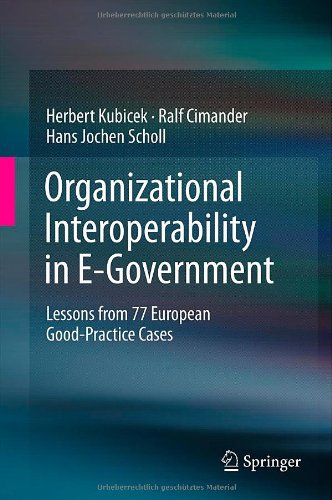

Most ebook files are in PDF format, so you can easily read them using various software such as Foxit Reader or directly on the Google Chrome browser.
Some ebook files are released by publishers in other formats such as .awz, .mobi, .epub, .fb2, etc. You may need to install specific software to read these formats on mobile/PC, such as Calibre.
Please read the tutorial at this link: https://ebookbell.com/faq
We offer FREE conversion to the popular formats you request; however, this may take some time. Therefore, right after payment, please email us, and we will try to provide the service as quickly as possible.
For some exceptional file formats or broken links (if any), please refrain from opening any disputes. Instead, email us first, and we will try to assist within a maximum of 6 hours.
EbookBell Team

4.7
86 reviewsIn the e-government research community as well as in many national e-government programs, interoperability is widely seen as a key factor in developing effective and attractive e-services. There is also agreement that interoperability encompasses not only mere technical standards and interfaces, but also includes organizational, legal, and cultural aspects. Several interoperability frameworks have been introduced on national and international levels, and recommendations have been made for the adaptation of enterprise architectures in the public sector.
Common to all these approaches is their top-down deductive procedure, which does not connect very well to the real world of e-government projects. In contrast, in this volume, which is based on empirical research, the authors introduce a bottom-up inductive approach to deal with the challenges of interoperability-related governance. Based on so-called “good-practice” cases of interoperability in e-government, they derive concepts and classifications that help to uncover and assess similarities and differences between the cases. As a result, they present an empirically based conceptual framework that details the options for IT governance of interoperability in government. In addition, their findings also make it possible to critically assess and improve other existing frameworks.
With this work, which combines different thematic foci as well as a European and a US background the authors situate empirical results in the broader context of theoretical and political reflection. Thus they provide insights into strategic choices for CIOs in e-government at a national or regional level, experiences and lessons learned for managers and developers in e-government projects, and a huge set of empirical data for administrative and political scientists.